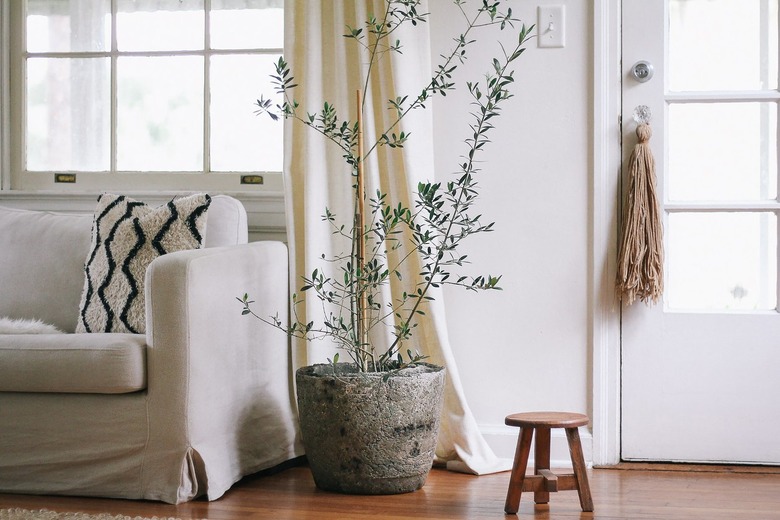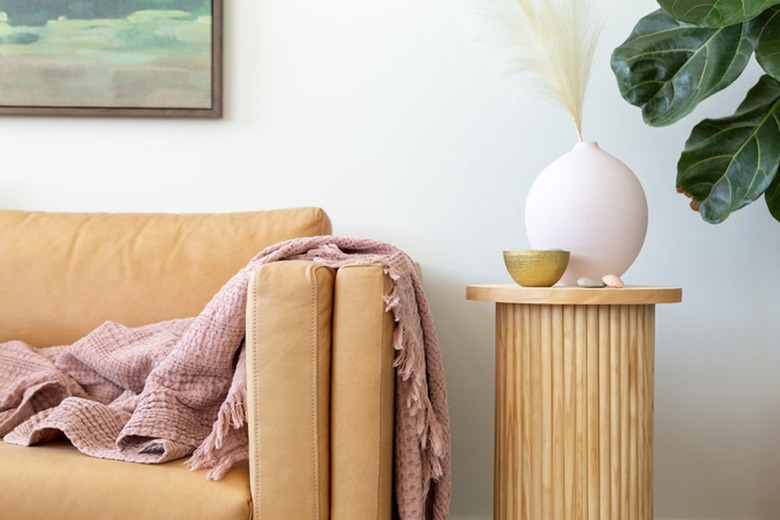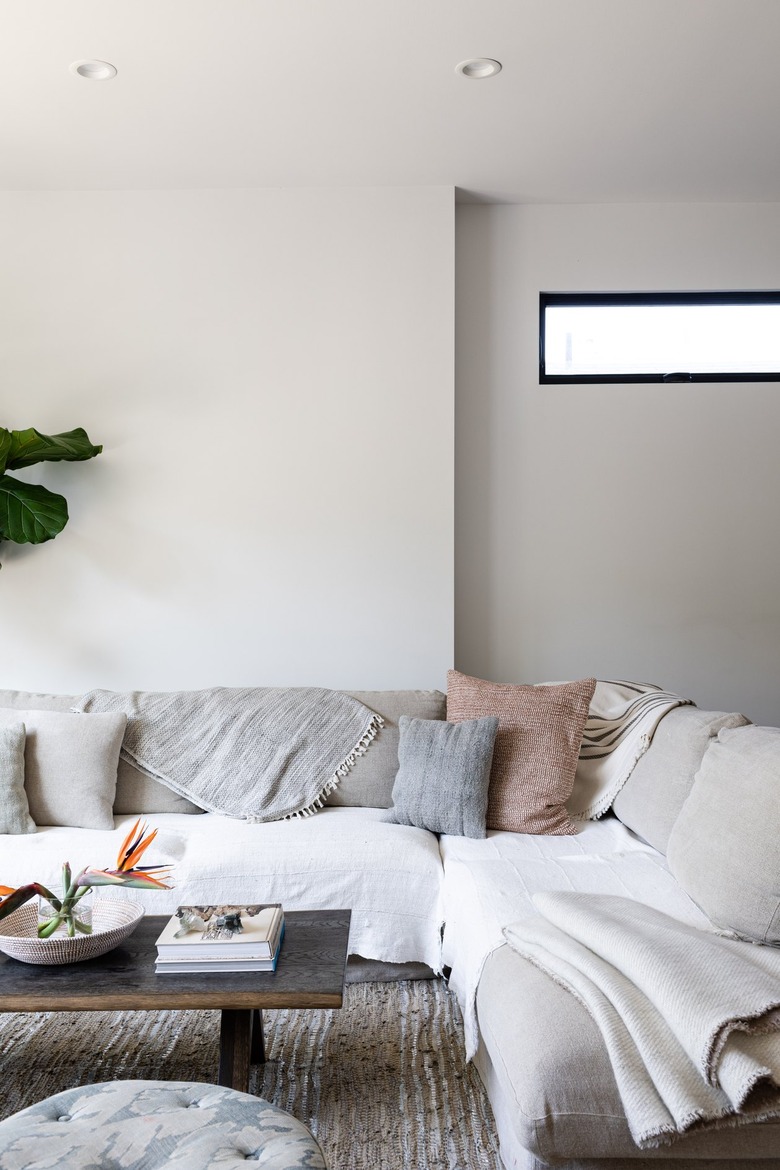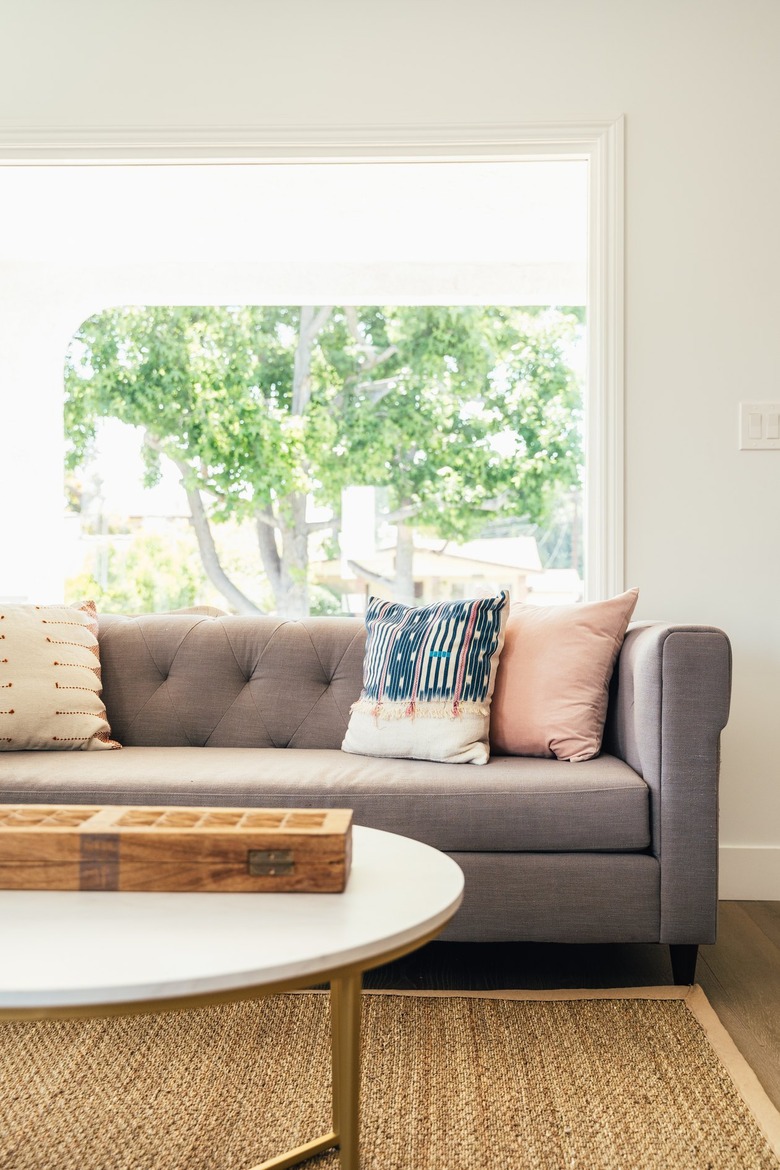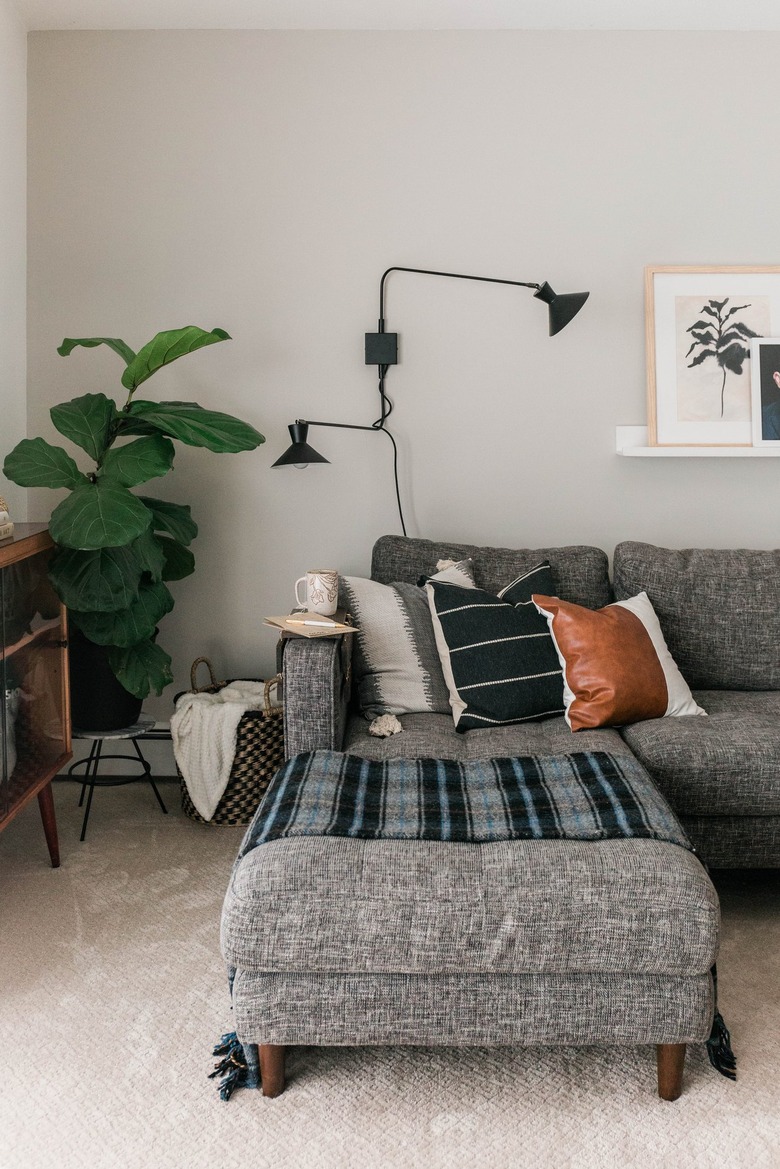7 Ways To Make Your Couch Last Longer
Let's face it: Sofas generally don't come cheap. And with so many different options on the market, it can be difficult to narrow down all of the choices and settle on a piece that you absolutely love. So when you do end up with your dream sofa, you'll want to ensure that it'll last as long as possible. This is key from both a financial and an environmental perspective. "Poorly constructed furniture may seem attractive at first, but will likely end up in the landfill once fabric starts ripping, and the seats begin sagging," states Leah Howatson, vice president of marketing at Castlery. "Investing in well-constructed furniture made from high-quality materials is always a sound bet as you can rely on it to last you a long time, saving you both money and preventing waste."
A number of factors shape how long a sofa will last. "Depending on the make and model of the sofa, and what the piece of furniture is made of, the average lifespan of a sofa is 10 years — between five and 25," notes Cristina Munteanu, head of sales at Distinctive Chesterfields. When it comes to materials that are especially long-lasting, Howatson is partial to a modern polyester fabric, which is known for being stain-resistant and easy to clean. Experts note that leather is also highly durable, but will patina over time.
Ready to learn more about how to extend the life of your sofa? We've rounded up seven useful tips for getting the most out of your furniture piece.
How to Extend the Life of Your Sofa
Below, experts weigh in with valuable hacks to keep in mind when it comes to lengthening the life of your sofa. Read on for seven of their go-to tips that will come in handy no matter what type of sofa you own.
1. Vacuum regularly.
Vacuums aren't just for the floors; you can also use them on your sofa. However, be sure to refer to your sofa's upholstery guide first to determine whether or not this cleaning method is safe. "Sofas with piping or tufting may require extra vacuuming to remove any particles from settling into the nooks and crannies," Howatson explains. A slipcover is also a great way to protect your investment from grime, dirt, and debris. Nowadays, you can get a custom-made slipcover for a tailored and modern look.
If your sofa is upholstered with leather instead of fabric, you will need to follow a different care protocol. "It's important to give your sofa regular care by applying leather conditioner to keep it soft and supple, as well as using your hands to smooth the upholstery from time to time in the area you frequently sit, in order to prevent a wrinkly appearance," Howatson says.
Munteanu expresses similar sentiments: "Leather sofas need the same treatment as human skin most of the time. Avoid household detergents, use special conditioners to moisturize and protect it, and use leather reviving cream over the years."
If your sofa cushions are removable, moving them around every now and then will pay off. "Flip, rotate, and fluff the cushions to prolong durability and keep the sofa looking plump," Howatson advises. But don't worry: if your seat cushions don't come out, there's still hope. "For sofas without removable cushions, it's important to smooth the surface and tuck excess upholstery into the sides to ensure creasing does not occur over time."
An abundance of natural light in your living room might bring you joy, but your sofa won't feel the same way. Thus, be mindful when deciding where to position your couch in a given room. Heat sources and sunlight will cause discoloration in most fabric sofa, Munteanu says. Plus, she adds, it will dry out leather.
We've all seen sofas with sagging cushions that have lost their aesthetic appeal. How can you work to prevent yours from succumbing to a similar fate? Ensure that it isn't weighed down more than it needs to be. This means not leaning your sofa directly against a wall or cupboard, Munteanu explains. Also, the cushion foam density will play a role in the lifespan of your couch. You might want to consider going with high-density foam. However, keep in mind that this will also affect how it feels when you sit down — so be sure to review all of your options with the manufacturer.
From a financial perspective, going modular may make your sofa last longer. So why not say yes to that sectional? After all, it will save you from having to purchase a new couch if you ever move and find yourself with a new spatial configuration. "Modular sofas are ideal for cutting costs and extending the value of your furniture," says Stephen Kuhl, CEO and co-founder of Burrow. "You can start with a smaller configuration, like a three-seater, and add a chaise or additional units as [the needs of] your space evolve over time."
Don't worry, by no means does your sofa need to undergo an expert cleaning every month. But besides regular spot-cleaning, a check-up of sorts once a year will make a major difference. "Yearly professional cleaning can help to eliminate any over-soiling that builds up and becomes more difficult to remove over time," notes Brandon West, senior product developer at Arhaus. A sofa is an investment, after all, so it's important to treat it like one.

